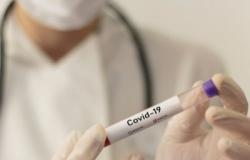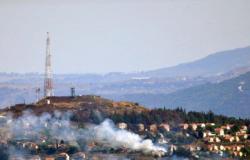The US Food and Drug Administration approved mRESVIA (mRNA-1345), a vaccine developed by the pharmaceutical company Modern based on mRNA of respiratory syncytial virus (RSV), to protect adults aged 60 years and older from lower respiratory tract disease caused by RSV infection.
The approval was granted with breakthrough therapy designation and marks Moderna’s second mRNA product.
“The FDA approval of our second product, mRESVIA, builds on the strength and versatility of our mRNA platform,” said Stéphane Bancel, Chief Executive Officer of Moderna. mRESVIA protects older adults from the severe outcomes of RSV infection and is the only RSV vaccine available in a pre-filled syringe designed to maximize ease of administration, saving vaccinators time and reducing the risk of errors administrative”.
This approval is also the first time an mRNA-based vaccine has been approved for a disease other than COVID-19. With mRESVIA, we continue to make a difference for patients by addressing global public health threats related to infectious diseases.”
Moderna plans to make mRESVIA available to eligible populations in the United States by the 2024/2025 respiratory viral season. The American company has requested approval of mRNA-1345 from regulatory authorities in several markets around the world.
Respiratory Syncytial Virus
RSV is a highly contagious seasonal respiratory virus and a leading cause of lower respiratory tract infections and pneumonia: It causes a particularly high disease burden in infants and the elderly. Each year in the United States, approximately 60,000-160,000 older adults are hospitalized and 6,000-10,000 die from RSV infection.
Effectiveness of the Moderna vaccine
The FDA approval of mRESVIA is based on data from the Phase 3 ConquerRSV clinical trial, a global study conducted in approximately 37,000 adults aged 60 years and older in 22 countries. The primary analysis, with 3.7 months of median follow-up, found vaccine efficacy against RSV lower respiratory tract disease (LRTD) of 83.7% (95.88% CI 66.0 %, 92.2%).
These findings were published in The New England Journal of Medicine. A follow-up analysis of the primary endpoint was performed during the FDA review, including cases initiated before the cut-off date of the primary analysis, but only confirmed thereafter. The results were consistent with the primary analysis [VE 78,7% (CI 62,9%, 87,8%)] and were included in the US package insert. Further longer-term analysis showed continued protection against RSV LRTD through 8.6 months of median follow-up.
According to the press release, results from a follow-up analysis of the study’s primary endpoint, performed during the FDA review, are consistent with the primary analysis. Further longer-term analysis also showed continued protection against RSV lower respiratory tract disease over a median of 8.6 months of follow-up.
No serious safety concerns were identified in the Phase 3 study. The most commonly reported adverse reactions were injection site pain, fatigue, headache, myalgia and arthralgia.
In addition to COVID-19 and RSV, Moderna is testing mRNA candidates against influenza, HIV, Lyme disease, Zika and several other diseases. In recent months, the company’s cancer vaccine, which it has partnered with MSD to use in combination with pembrolizumab, has gained particular attention.
Vaccine safety
Moderna said no serious safety issues were found during clinical trials; the most commonly reported side effects were injection site pain, fatigue, headache, and muscle and joint pain. It is important to note that there have been no reported cases of Guillain-Barré syndrome, a form of progressive paralysis that usually recovers. Both Pfizer and GSK have reported cases of GBS in their clinical trials, findings that have concerned the expert panel that helps the CDC set recommendations on the use of authorized vaccines.
Last year, the Advisory Committee on Immunization Practices (ACIP) recommended that adults age 60 and older can get one of the RSV vaccines, but that they should discuss the pros and cons with a doctor, foregoing a more emphatic recommendation – and perhaps market-stimulating – that urged all adults in the eligible age range to take one of the vaccines. An analysis released this week by the CDC confirmed the cause for concern, noting that the rate of GBS cases reported per million vaccine doses administered ranged from 1.5 to 5 cases.
These rates are higher than those seen with Covid vaccines, which have not been linked to an increased risk of GBS.
How the Moderna vaccine works
Developed by Moderna, mRESVIA is a vaccine against RSV consisting of an mRNA sequence that encodes a stabilized prefusion F glycoprotein. F glycoprotein is expressed on the surface of the virus and is necessary for infection, helping the virus enter host cells. The prefusion conformation of the F protein is a significant target of potent neutralizing antibodies and is highly conserved in both RSV-A and RSV-B subtypes. The vaccine uses the same lipid nanoparticles (LNPs) as Moderna COVID-19 vaccines.
Vaccines available in the US for RSV
The Moderna vaccine comes to market a year after two competitors, GSK’s Arexvy and Pfizer’s Abrysvo, both approved for the same age group. Pfizer’s can also be used as a maternal vaccination to protect newborns.
Moderna’s is the first mRNA vaccine against RSV. Additionally, the company said its vaccine is the only one of the three to be packaged in a pre-filled syringe, which saves time and reduces the risk of administration errors for pharmacists and other health care workers administering the vaccines.
GSK’s Arexvy generated £1.2 billion ($1.5 billion) last year, while Pfizer’s Abyrsvyo generated revenue of around $1.03 billion.





